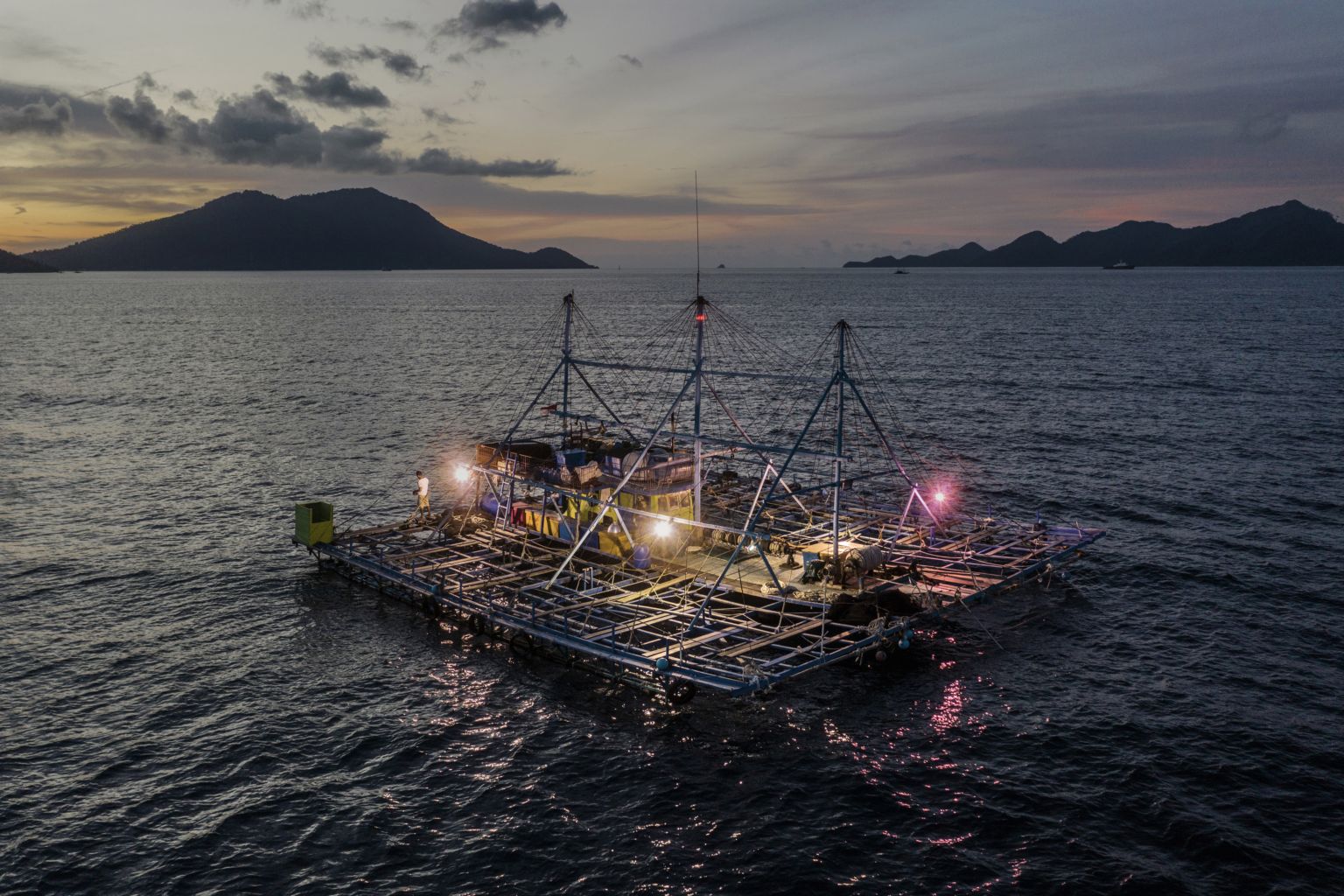China chases Indonesia's fishing fleets, staking claim to sea's riches
Sign up now: Get insights on Asia's fast-moving developments

A photo taken on Jan 30, 2020, shows Indonesian fishermen heading out in waters near Indonesia’s Natuna Islands, in the South China Sea.
PHOTO: NYTIMES
Follow topic:
NATUNA ISLANDS, INDONESIA (NYTIMES) - Mr Dedi knows where the fish run strongest in Indonesian waters off the Natuna islands. The Chinese know too.
Backed by armed Chinese coast guard ships, Chinese fishing fleets have been raiding the rich waters of the South China Sea that are internationally recognised as exclusively Indonesia's to fish.
While Mr Dedi catches the traditional way, with nets and lines, the steel Chinese trawlers scrape the bottom of the sea, destroying other marine life. So not only does the Chinese trawling breach maritime borders, it also leaves a lifeless seascape in its wake.
"They come into our waters and kill everything," said Mr Dedi, who like many Indonesians goes by a single name. "I don't understand why our government doesn't protect us."
Wary of offending its largest trading partner, Indonesian officials have played down incursions by Chinese fishing boats, trying to avoid conflict with Beijing over China's sprawling claims in those waters. But with the Chinese presence growing more aggressive, fishers in the Natunas are feeling vulnerable.
"There was a vacant period, then China came back," said Mr Ngesti Yuni Suprapti, the deputy regent of the Natuna archipelago. "Our fishermen feel scared."
The latest episode occurred in February, fishers said, when Chinese boats flanked by Chinese coast guard vessels dropped their trawl nets yet again. It seemed as if the coronavirus outbreak peaking in China at the time hadn't diminished the country's global ambitions.
The Indonesian Fisheries Ministry, however, denied any intrusion by the Chinese. The Indonesian government does not provide data on incursions by foreign fishing boats.
China's illegal fishing near the Natunas carries global consequence, reminding regional governments of Beijing's expanding claims to a waterway through which one-third of the world's maritime trade flows. But local leaders in the Natunas don't control what happens near their shores.
"We only have authority over our land," said Mr Andes Putra, the head of the Natunas Parliament. "The provincial and central governments handle the seas."
Yet with multiple agencies responsible for protecting the seas - the navy, the coast guard, the marine police and the Fisheries Ministry, to name several - decision-making is diffuse, analysts said.
"There is a lack of a single coherent lead agency or a single coherent policy for maritime security," said Mr Evan Laksmana, a senior researcher at the Centre for Strategic and International Studies in Jakarta, the Indonesian capital. "The Chinese can take advantage of that."
Chinese impunity was on full display in January when President Joko Widodo of Indonesia visited the Natunas.
"There is no bargaining when it comes to our sovereignty," Mr Joko said. Earlier, Indonesian fighter jets buzzed the sky, while warships patrolled the seas.
But the day after Mr Joko left the Natunas, the Chinese showed up again. Its fishing fleet, backed by the Chinese coast guard, took days to leave the area, local officials and fishers said.
The Fisheries Ministry denied that any such incident had taken place.
"Little by little, I think the Chinese will take the Indonesian sea, the Philippine Sea, the Vietnamese sea," said Mr Wandarman, a fisherman in the Natunas. "They are hungry: oil, natural gas, and lots and lots of fish."
The Chinese fishers are helping feed the country's growing appetite for seafood by trawling the South China Sea. But they are also serving a broader purpose.
"Beijing wants Chinese fishers to operate here," said Assistant Professor Ryan Martinson at the China Maritime Studies Institute at the US Naval War College, "because their presence helps to embody China's maritime claims".
In late October, one day after Mr Joko's new Cabinet was installed, Mr Dedi's boat was well within the 200 nautical mile exclusive economic zone in which only Indonesians are permitted by international law to fish.
A Chinese coast guard vessel appeared, then another. Mr Dedi scrambled to record video of his boat's coordinates, 72 nautical miles north of the Natunas.
While it is not illegal for foreign military vessels to transit through these waters, the coast guard ships were protecting the Chinese trawlers.
After handing over his video to local maritime authorities, Mr Dedi waited for action. Nothing happened, so he posted it on Facebook. Indonesian security services called him, he said, and sounded vaguely threatening.
To counter China's presence, Indonesia began building a military base in the Natunas four years ago. Today, the facility is mouldering, empty of all but a few soldiers. Only a handful of Indonesian coast guard craft regularly patrol the waters off the islands.
Jakarta's latest tactic is to relocate hundreds of fishers from the populous Indonesian island of Java to the Natunas to act as maritime sentries.
But fishers in the Natunas oppose the idea, since the Javanese are subsidised by the state and do the same destructive bottom trawling as the Chinese.
Mr Wandarman said that because of the profusion of foreign boats in recent months, his catch had declined by half.
But fishing is his livelihood, Mr Wandarman said. The island he lives on has only two traffic lights, and not much to support it economically besides the sea.
"Our boats are small and wooden, and the Chinese coast guard is armed and modern," Mr Wandarman said. "My fear out there is bigger than the sea is big."

